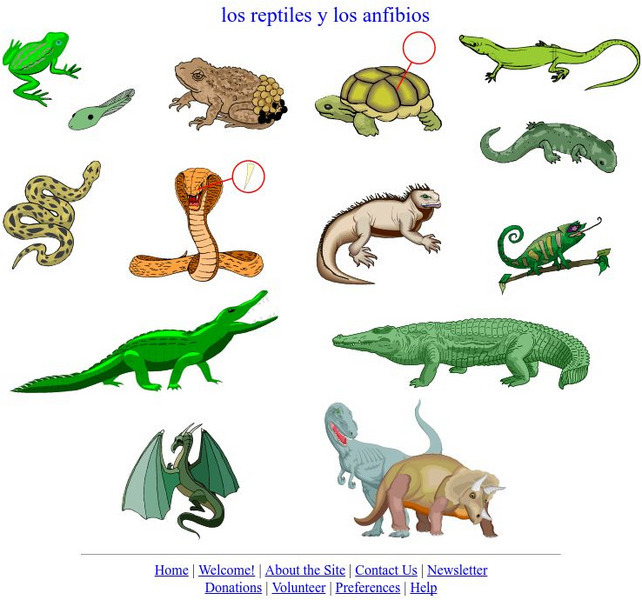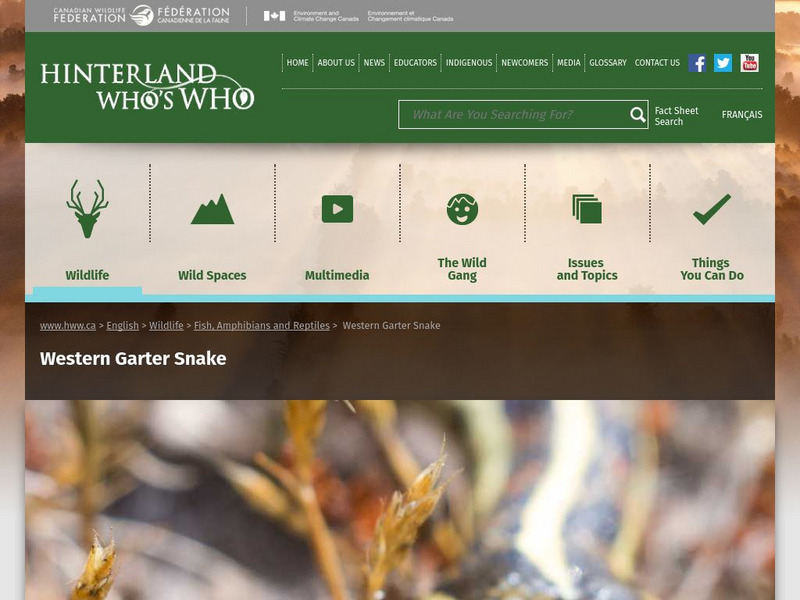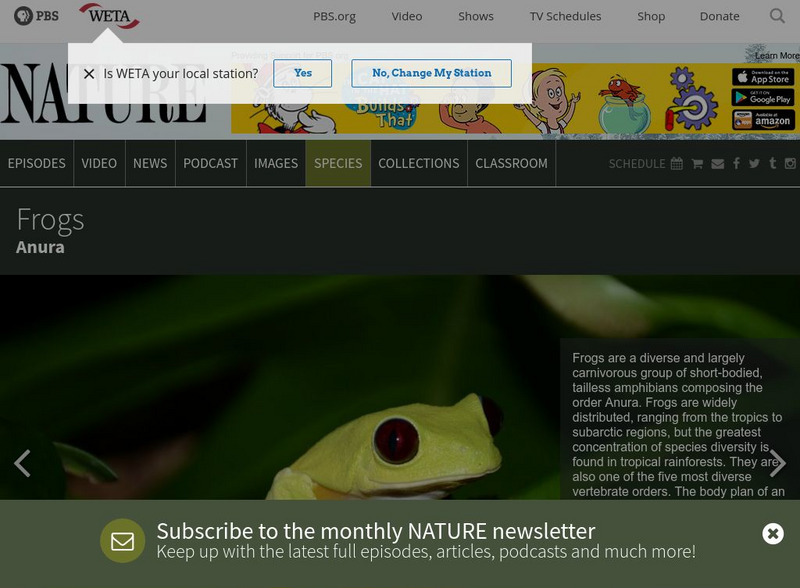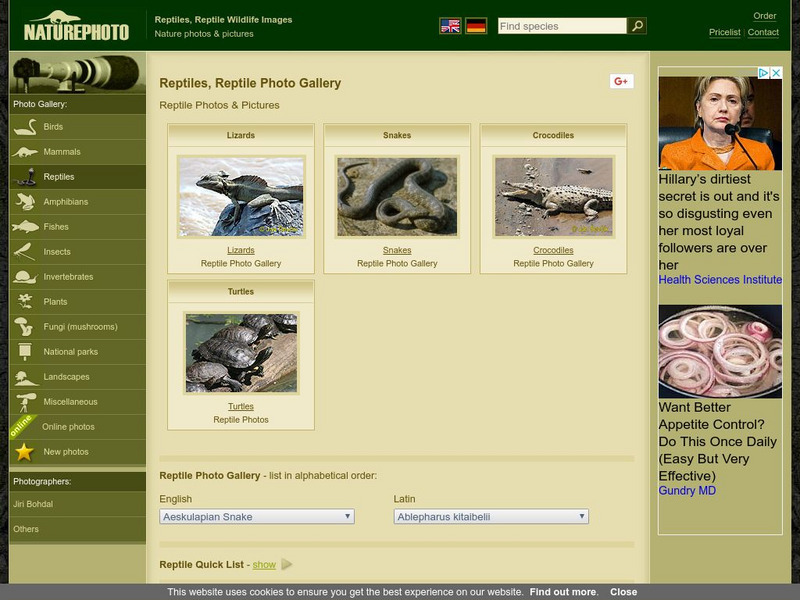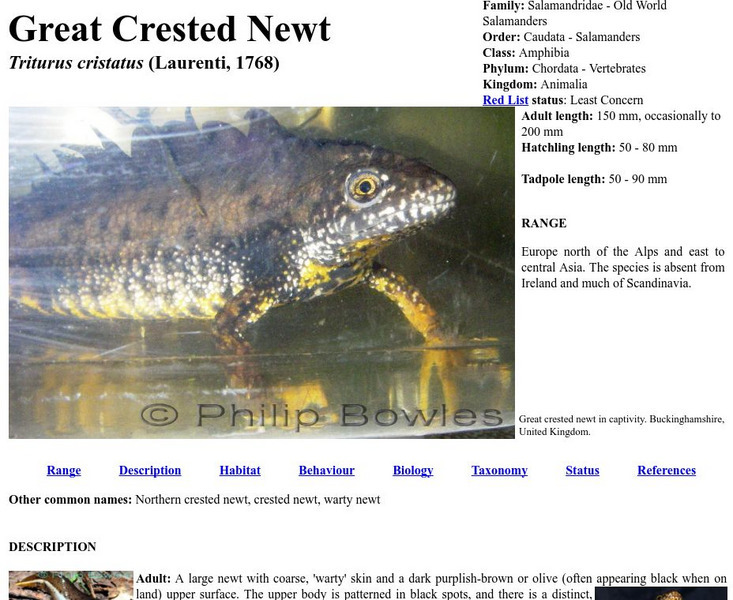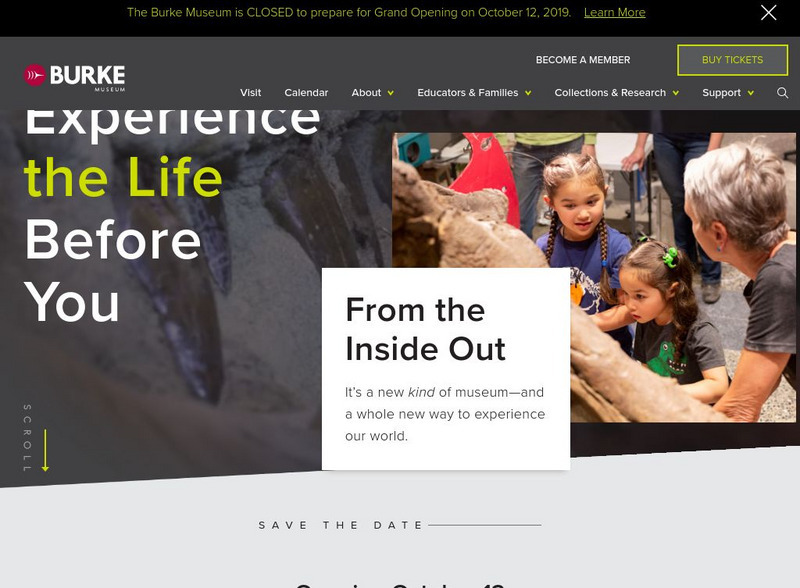Utah Education Network
Uen: Trb 4:5 Investigation 12 Amphibians & Reptiles
Activity provides for comparing and contrasting the behavior and structure of amphibians and reptiles of Utah.
Language Guide
Language Guide: Los Reptiles Y Los Anfibios
This vocabulary tutorial would integrate well with a science unit on reptiles and amphibians. Vocabulary can be seen and heard when moving the mouse over each picture.
Encyclopedia of Earth
Encyclopedia of Earth: Adaptations of Desert Amphibians and Reptiles
The evolution of amphibians from prehistoric days is described, and the challenges they face when living in a desert environment, of which the ability to reproduce is the greatest. How they manage to survive in a desert is explained in...
Natural History Museum
Natural History Museum: Reptiles, Amphibians and Fishes
This online exhibit from the Natural History Museum branches out in many fields to cover the broad topics of reptiles, amphibians and fishes. Thirteen subtopics are provided including several videos and informative articles.
Smithsonian Institution
Smithsonian National Zoo: Reptile Recovery Center
This website presents fact sheets about numerous reptiles. Choose from a pull-down list between snakes, lizards, crocodilians, and turtles. The fact sheets contain information such as taxonomy, distribution and habitat, eating habits,...
Other
International Reptile Conservation Foundation: Reptile Conservation Homepage
Information on the preservation of endangered reptiles and amphibians. Includes video, photos and species descriptions.
Cornell Lab of Ornithology
Habitat Network: Habitat Feature: Shelter for Reptiles and Amphibians
Find out why creating and conserving habitat for amphibians and reptiles is important.
Other
Amphibian and Reptile Conservation: Natterjack Toad
Description of the Natterjack Toad, including how to identify it, and its life cycle. It also provides a video [6:06] of an edition of the Living World with Lionel Kellaway, focussing on the natterjack chorus.
Smithsonian Institution
Smithsonian Education: Toads, Turtles, Snakes, Salamanders, and Other Creepers
Smithsonian Education presents Reviled and Revered: Toads, Turtles, Snakes, Salamanders, and Other Creepers and Crawlers. Get the facts about reptiles and amphibians. Learn about their unique characteristics, as well as explore why we...
Other
K 3 Learning Pages: Reptiles and Amphibians
Come and discover more about reptiles and amphibians when you explore this awesome resource. This site is filled with useful links.
Other
Sc Reptiles & Amphibians: Eastern & Florida Cottonmouth
South Carolina Reptiles & Amphibians profiles the eastern cottonmouth. A great site for photos-- both the eastern and Florida cottonmouth are pictured.
Other
Reptiles and Amphibians of the Uk: Grass Snake
The most common species in the UK, the Grass Snake is identified by the Reptiles and Amphibians of the UK website. Detailed description and photos included.
Biology 4 kids
Biology4 Kids: Traits of Reptiles
Check out the common traits of reptiles that sets them apart from amphibians.
Canadian Wildlife Federation
Hinterland Who's Who: Western Garter Snake
Get the facts about the western garter snake. Besides finding a detailed description of second most common snake, you'll also learn about some of its unique facts and characteristics. Also included in this Amphibian and Reptile Fact...
PBS
Pbs Nature: Frogs and Toads
Do you know how to tell the difference between a frog and a toad? This site provides interesting facts and information about this type of amphibian from where they live to what they eat and more.
Other
Asp Viper
A series of color photos of the Asp Viper from Amphibians and Reptiles of Europe. Link to related species photos.
ClassFlow
Class Flow: Reptiles and Amphibians
[Free Registration/Login Required] This flipchart provides basic information for the characteristics of reptiles and amphibian and life cycles. Videos show reptiles and amphibians that can cruise through the air, and an alligator mom...
Other
Online Field Guide: Great Crested Newt
Thorough guide to the scientific study of the Great Crested Newt, written by an expert in the field of herpetology (the study of amphibians and reptiles).
Burke Museum
The Burke Museum of Natural History & Culture
The museum features online quizzes and exhibits like Kennewick Man, "Mammals of Washington," Amphibians and Reptiles of Washington," archeology, and vertebrate paleontology.
Other
Florida Department of Environmental Protection: Life in a Spring
Learn all about the diverse species that live in the Florida Springs. Separate sections for fish, reptiles and amphibians, birds and mammals, insects and invertebrates, and plants.
Curated OER
National Park Service: Arches National Park: Animals
A resource where you'll learn about amphibians, birds, mammals, and reptiles at Arches National Park in Moab, Utah. A good look at how animals live, sleep, eat, and stay active in a desert habitat.
Other
Science4 Us: Animals
In online and offline activities, students broaden their understanding of animals by learning to identify and classify animals into six categories: mammals, birds, fish, amphibians, reptiles, and invertebrates.
University of Florida
Florida Museum of Natural History: Animals 1: Fur, Fins, Feathers, and More
This teacher's guide focuses on familiar animals such as mammals, birds, reptiles, amphibians, and fish.
Other popular searches
- Reptiles and Amphibians
- Reptiles Amphibians
- Amphibians and Reptiles K 2
- Reptiles & Amphibians
- Amphibians and Reptiles K
- Reptiles Amphibians Fish
- Compare Reptiles Amphibians
- Amphibians and Reptiles Prek
- Reptiles Amphibians Birds
- Amphibians and Reptiles Unit
- Amphibians and Reptiles Perk
- Amphibians and Reptiles 3 5

